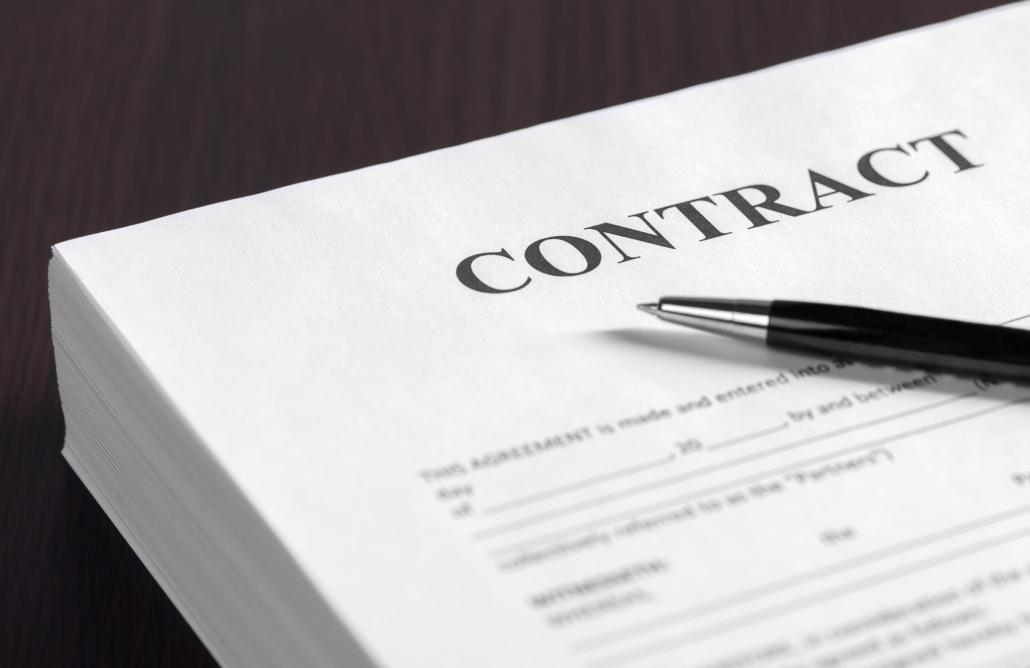LEGAL+ NEWS
In the business world, decisions have to be made all the time. Many such decisions consist of having decided on a specific partner for a project, with whom a corresponding contract must then be concluded. The frequent problem is that there is a lack of time or simply a lack of certain clarifications of a factual and/or legal nature to be able to conclude the contract “ad hoc”. In such situations, it is often not an option to simply wait (without obligation) until all outstanding points have been clarified. This is when the preliminary agreement comes into play, which allows the parties to enter into a binding agreement immediately, even though there are still outstanding points that need to be clarified.
The following article is intended to sensitize you to the problems associated with the preliminary contract.
Starting point: § 154 BGB
Basically, it is important to know that the law assumes that there is no contract, and therefore no commitment, until the parties have clarified all points. In § Section 154 (1) BGB it says:
“As long as the parties have not agreed on all points of a contract on which, according to the declaration of even one party, an agreement is to be made, the contract is not concluded in case of doubt. The agreement on individual points is not binding even if a recording has taken place. “
Basic definition of the preliminary contract
A preliminary contract is a contract that creates an obligation for both parties, or only for one of them, to conclude the actual contract under the law of obligations, the main contract.
Required for preliminary agreement: corresponding intention to be legally bound
The Federal Court of Justice (BGH) has worked out the framework criteria for the assumption of a preliminary agreement as follows (NJW 2006, 2843):
“According to the interpretation rule of Section 154 I 1 BGB, a binding contract only comes into existence when the parties have agreed on all points that they believe need to be regulated. However, the rule only applies in case of doubt and does not prevent the parties from initially only binding themselves with regard to individual points by concluding a preliminary agreement and reserving the settlement of the remaining points for a later agreement (…) With regard to Section 154 I 1 BGB, however, the assumption of a preliminary agreement is only justified if special circumstances indicate that the parties exceptionally wanted to bind themselves contractually before the final agreement on all points requiring regulation(…).”
The core of the preliminary agreement is thus aptly summarized as follows:
The parties to a preliminary agreement want to be bound, although at this point there is still no final agreement on all points requiring regulation.
Minimum content of the preliminary contract
The preliminary agreement requires a minimum content to be effective. This applies irrespective of the expressed intention to be legally bound. The BGH has summarized this minimum content using the example of a purchase agreement as follows (NJW 1990, 1234):
“A preliminary agreement to a purchase agreement is generally sufficiently specific if the object of purchase and purchase price as well as the ancillary points considered essential by the contracting parties are regulated or can be determined.”
Rule of thumb for minimum content: There must already be agreement on all points essential to the contract in the preliminary contract.
If there is no provision on all points essential to the contract, it is not possible to close gaps at a later date. The BGH (NJW 2006, 2843):
“Insofar as the details of the provisions to be made are reserved for the contract to be concluded, the lack of agreement between the contracting parties only leads to the invalidity of the preliminary contract if the parties have considered the unregulated point to be essential (…). In such a case (…) it is not possible to determine what applies.“
Legal consequence of the preliminary contract: enforceable obligation to negotiate the main contract
Every preliminary agreement therefore also involves a risk for the parties who decide to enter into it, which must be weighed up. Because:
The parties are bound, although there is still a lack of agreement on outstanding points. Each party can demand the conclusion of the main contract from the other party after the conclusion of the preliminary contract. If necessary, a court will then “help” to close the existing gaps in accordance with the preliminary agreement. The Federal Court of Justice (BGH) in the judgment cited above:
“A preliminary agreement obliges both parties to participate in the negotiation of the terms of the contract to be concluded (…). By concluding the preliminary agreement, both parties have assumed the obligation to deal with the proposals of the other party regarding the content of the intended contract. If the content of the contract to be concluded is disputed in court proceedings, each party to the preliminary agreement is entitled to demand the fulfillment of the assumed obligation in the form of a contractual declaration formulated by it and to make it the subject of an action if the other party does not fulfill its obligation to seriously negotiate the content of the contract to be concluded or if an agreement cannot be reached. It is then the responsibility of the defendant party to assert a possible room for maneuver by means of concrete alternative proposals.”
Typical stumbling block in the preliminary agreement: disregarded formal requirements
If the parties to a preliminary agreement dispute the conclusion of the main agreement, it is not uncommon for an overlooked formal requirement to be used by the party unwilling to reach an agreement to “free” itself from the preliminary agreement.
If there are mandatory formal requirements for the main contract, these can also be a prerequisite for the validity of the preliminary contract. It then depends on the function of the formal requirement:
If a formal requirement is intended to protect the main contract against premature binding(warning function), this formal purpose already requires the preliminary contract to comply with the form of the main contract. Accordingly, the BGH considered, for example, a preliminary agreement aimed at the sale of a property to be in need of form.
If, on the other hand, the formal requirement for the main contract (only) serves the purpose of clarification and preservation of evidence, the preliminary contract is valid without form, as compliance with the form prescribed for the main contract satisfies these formal purposes.

Conclusion on the preliminary contract
If the parties to the preliminary agreement are sufficiently aware of the commitments they are entering into and also know which requirements must be observed for an effective preliminary agreement, it is a practical tool in business life for quickly securing operational business processes. The often time-consuming negotiation of contract details can thus take place in peace, without the “whether” of the respective deal still being in question.

LATEST ARTICLES

Guide to International Civil Procedure: Recognition and enforcement of foreign judgments in Germany
Once a judgment has been successfully obtained against a German debtor abroad (in a third country), the creditor is faced with the important practical question of how to actually get his money.
If the German debtor does not pay voluntarily, only the enforcement of the judgment will help. However, since in most cases the German debtor only has assets in Germany that could be enforced, the foreign judgment must be enforced in Germany. This requires that the foreign judgment has first been declared enforceable by a German court. This declaration of enforceability is the subject of separate court proceedings against the debtor in Germany, at the end of which, if successful, an enforcement order will be issued.
The following article deals with the content of these proceedings.

Guide to appeal law – Importance of the content of the grounds of appeal for the scope of review by the court of appeal
The view that the content of the grounds of appeal determines the scope of review by the court of appeal is widespread. According to this view, the grounds of appeal must contain all complaints regarding the first instance judgment that the appellant wishes to have reviewed by the court of appeal. If the appellant omits a complaint, this would mean that the court of appeal itself would have to ignore legal violations that it has recognized and deemed to be significant.

Possibilities of contesting a settlement concluded in court
Civil proceedings are often concluded by way of a settlement between the parties during the course of the proceedings. This is often done with the help of the court. Practice shows that such a settlement, despite the involvement of the court, is not without its pitfalls. I would like to provide an overview below.
CONTACT

+49 (40) 57199 74 80
+49 (170) 1203 74 0
Neuer Wall 61 D-20354 Hamburg
kontakt@legal-plus.eu
Benefit from my active network!
I look forward to our networking.
This post is also available in: DE

